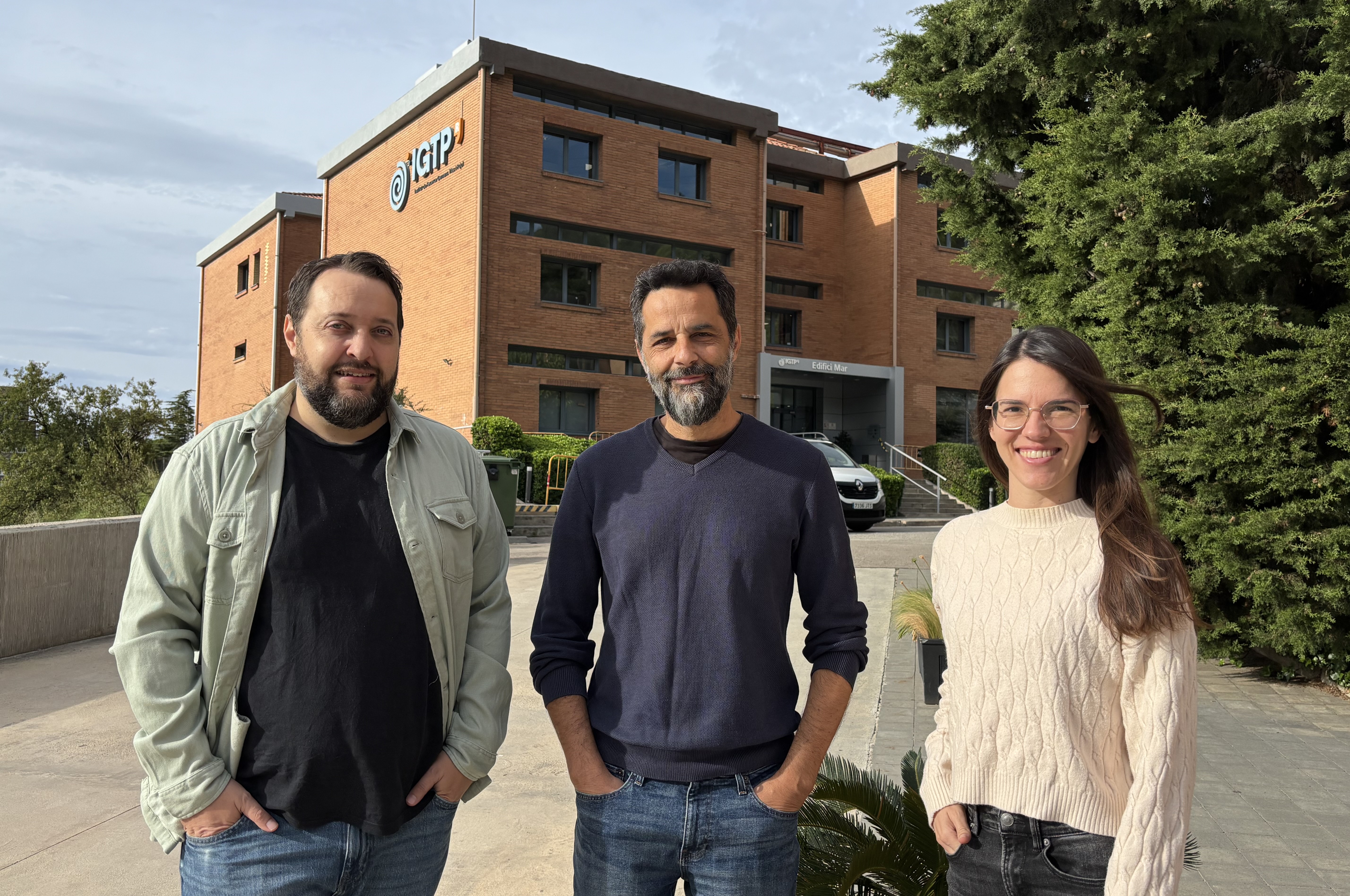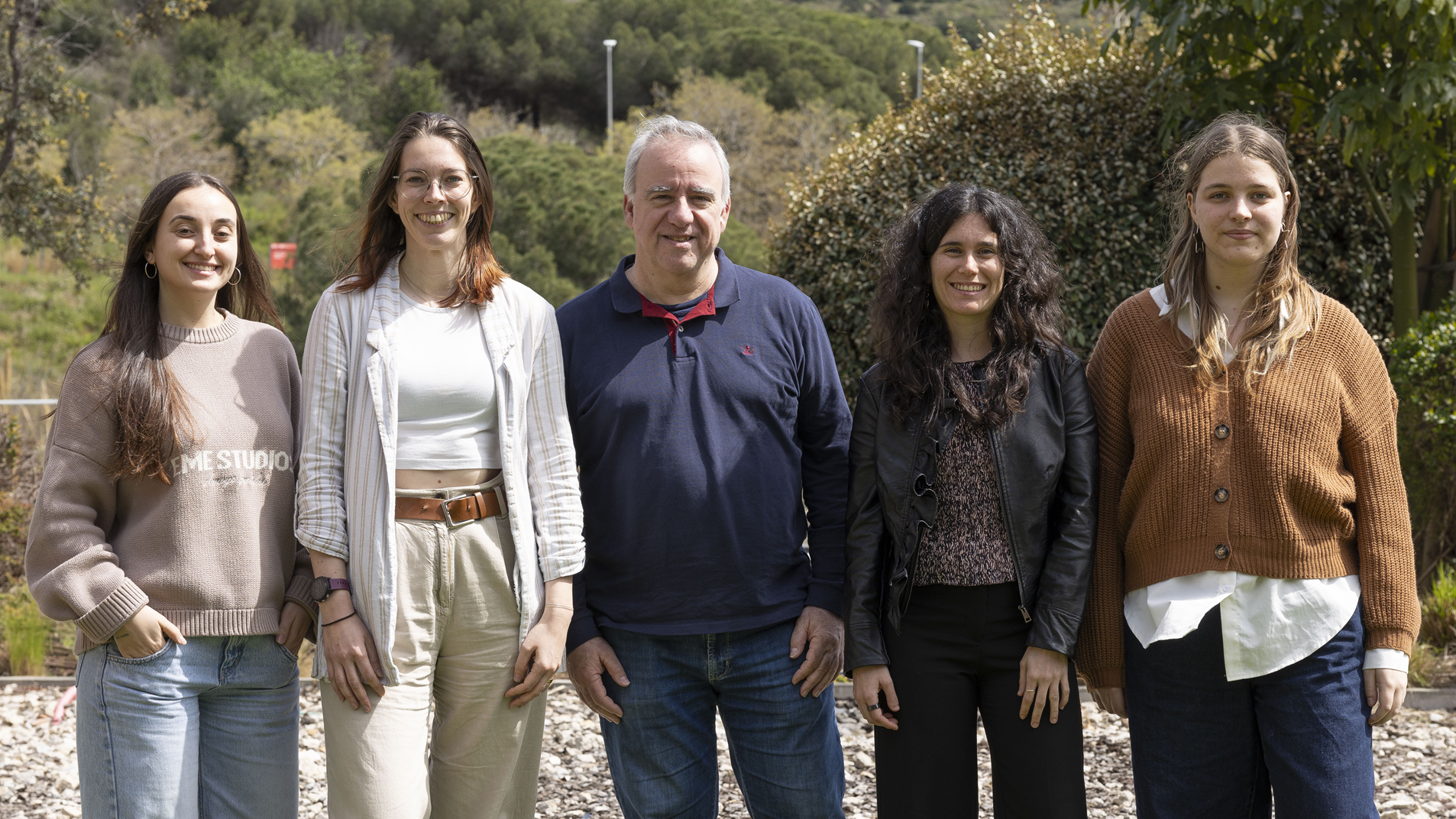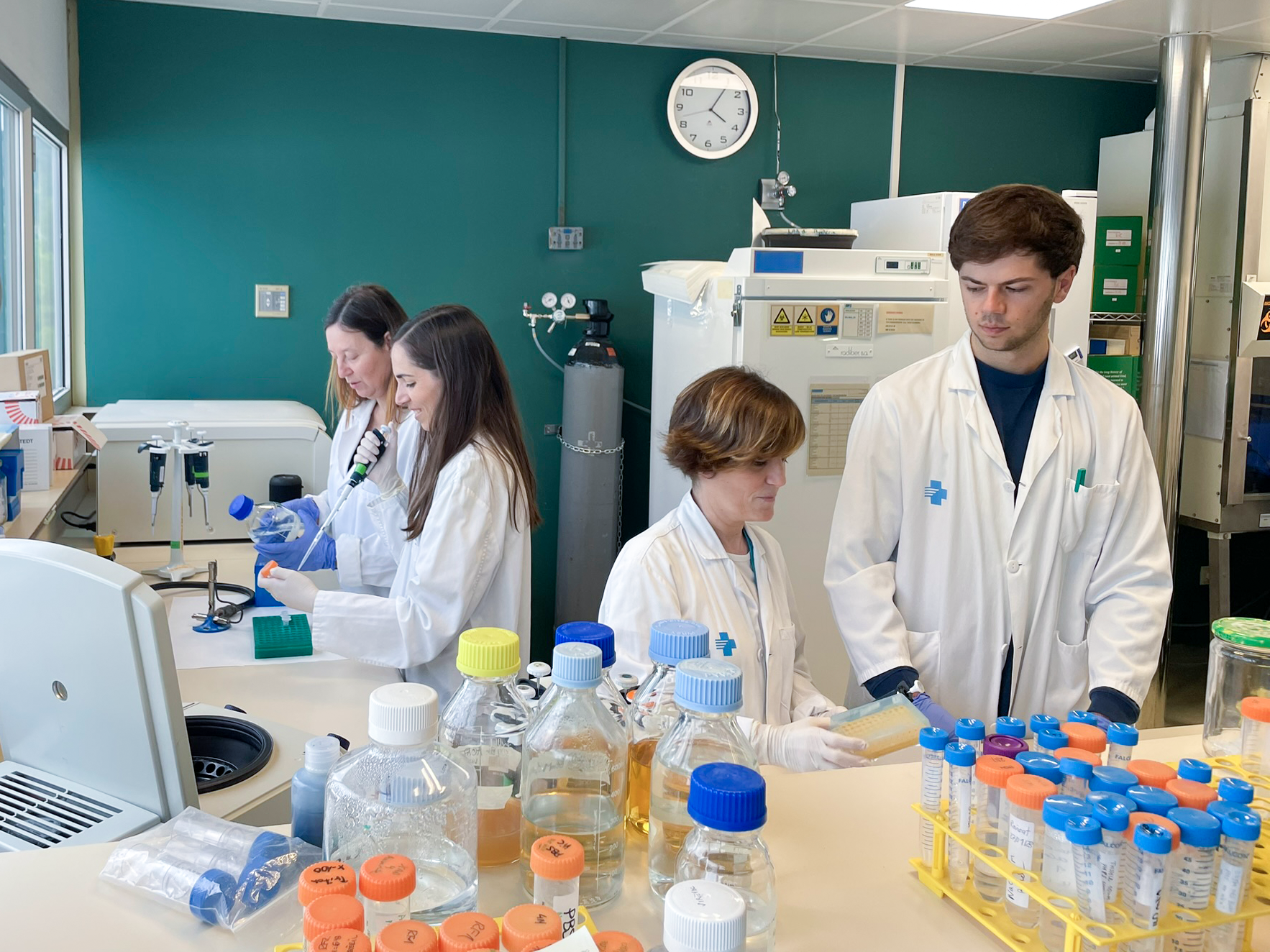Awards for Research Career in Primary Care and for Best Article at the 16th Conference of Institut Català de la Salut, focused on cancer
The conference has been a meeting point and an opportunity to share strategies, knowledge and innovative projects that contribute to improving the health and quality of life of people affected by cancer. Pere Torán and Federico Fondelli, researchers affiliated with IGTP, have been recognised in the 2025 Research Awards.
_1762445197.png)



_1746530699_1761816045.jpg)





